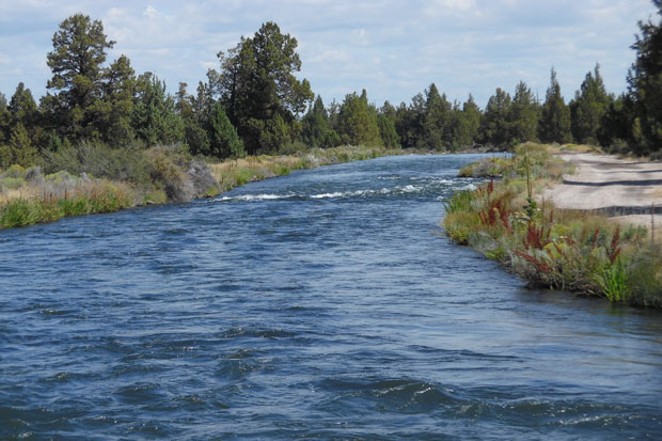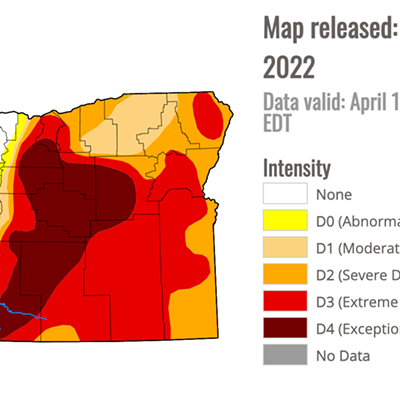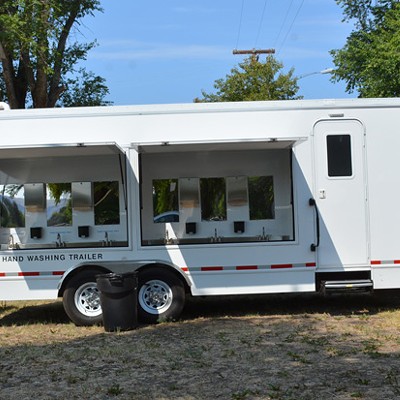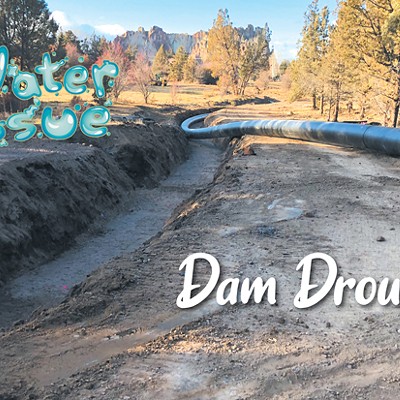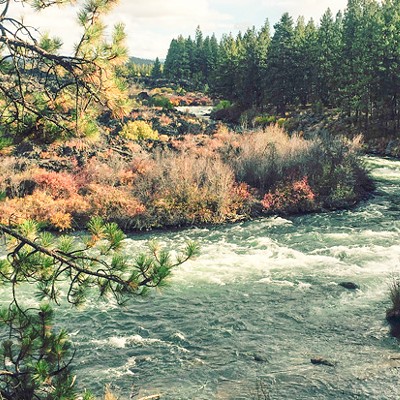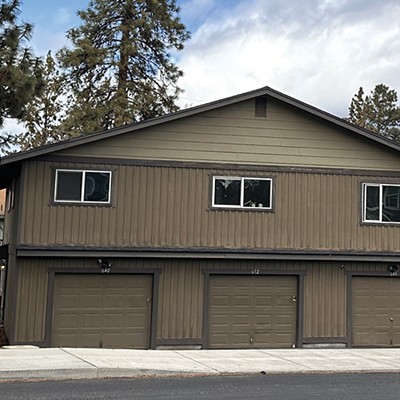Here's a thing that's just as antiquated as a covered wagon: The way Central Oregon treats its relationship with one of its most coveted resources, its water. The system that allocates water resources from the precious Deschutes River has largely been in place since those covered wagon days—and if the local irrigation districts get their way, it's largely going to stay that way.
Just as covered wagons are no longer en vogue for transportation—or even for advertising a city's transportation survey (see this week's Letters to the Editor)—so too should antiquated water allocations be out of vogue as well.
Back when local irrigation systems were put in place, people knew far less than they do now about how raising and lowering stream flows, in diverting water for irrigation, would impact species such as the Oregon spotted frog, that depend on more stable flows for survival. Neither may they have anticipated that, in areas around the now-booming city of Bend, that people would be living on rural properties without farming the land. Those founders may not have foreseen that non-farming rural property owners may someday—as they do now—throw away water in lieu of losing their water rights, simply because irrigation districts say they should "use it or lose it." Those founders likely didn't anticipate that farther north—where the Deschutes flows after leaving Bend—that actual farmers would be suffering from lack of water because of what was taken for those non-farmers upstream.
But even if those European settlers didn't foresee it all, it's still all true today.
Right now, the U.S. Fish and Wildlife Service is finalizing its Deschutes River Basin Habitat Conservation Plan—an agreement between local irrigation districts and the federal government that is, in theory, aimed at reducing the harm caused by irrigation. Unfortunately, as local river advocates have resoundingly asserted, the plan doesn't go far enough to address the health of the river. Stream flows are set too low to make it healthy for species such as the spotted frog, steelhead and bull trout, and the phasing in of that process is taking far too long, at 30 years.
What's more, "senior" water rights holders such as Central Oregon Irrigation District, located closer to the source of the Deschutes, often use water unnecessarily, at the expense of junior water rights holders.
As Central Oregon LandWatch puts it: "For many of the COID water users, the water is merely a real estate amenity or, at best, used for a hobby farm. Wasteful flood irrigation is practiced in many places. The COID advocates use over conservation. That is not to say that all COID patrons want to waste water. Actually, a growing number of them have made it clear that they would like to lease their water to the River and NUID (North Unit Irrigation District) farmers, but COID is currently preventing that."
What's more, massive, expensive piping projects may not be the best solution for saving water; incentives for landowners to save water could be even more beneficial.
The Deschutes River and its tributaries do offer enough water to cover the needs of our growing region—but only if local irrigators such as COID allow more sharing of those resources, and do more to end water waste. A hobby farmer in Bend should not be flood irrigating her property simply to stave off losing her water allocation, while downstream, a carrot seed farmer in Madras sees his fields lie fallow for lack of water. As climate change puts further strain on precious resources, it's time to see each droplet count.
Fortunately, local people have until 8:59 pm on Dec. 3 to weigh in on what changes they would like to see in the way of water in Central Oregon.
People can submit comments directly at the Federal Register by referencing Docket No. FWS–R1–ES–2019–0091. Central Oregon LandWatch and the website Deschutes3030.com also offer links to the comment portal.
People have long agreed that covered wagons are not an ideal form of transportation. Now it's time to agree that irrigation systems put in place during the covered-wagon days need to go too.

